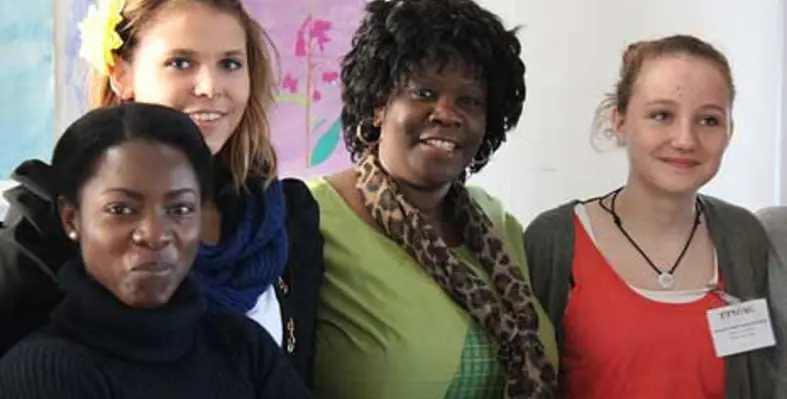African journalists make visits to key elements of Finland’s success: education, business, IT, good governance, crisis management as well as water and forestry expertise - African Review was there
“I believe that Finnish society has developed and works well thanks to its transparency. We would like to take this back with us to Africa,” said Dommie Yambo-Odette, a Kenyan journalist who visited Finland last week.
“I was greatly impressed by the openness with which the politicians we met received African journalists. In school, too, we sensed an atmosphere that was inspiring, open and supportive of learning,” Yambo-Odette continued.
Finland and Africa together
The Development Communications Group at the Ministry for Foreign Affairs together with the Embassy of Finland in London organised a trip for 15 African journalists and a few journalists following African affairs from London and New York so that they could get acquainted with Finland. The purpose was to ponder together the ingredients that give rise to sustainable development. At the same time, special know-how based on Finland’s own development experiences was presented.
The journalists learned about the keys to Finland’s success: education, business, information technology, good governance, crisis management, and water and forestry expertise. The most powerful experiences of the journalists’ trip were the visit to Nuuksio National Park and bathing in a smoke sauna followed by a dip in the cool autumn waters of Tuusulanjärvi lake.
The guests met with Foreign Minister Erkki Tuomioja and Development Minister Heidi Hautala.
The topics of discussion with Foreign Minister Tuomioja included the Palestinians’ situation, EU and NATO operations in Libya, population growth and globalisation.
Development Minister Heidi Hautala emphasised transparency during her meeting with the journalists.
“In Finland, public documents are available to everyone, and transparency in development policy must also be increased. A transparent Government is a stronger Government, but the role of the opposition is also important. A partner country’s ownership should not mean ownership by the Government, but the people’s ownership of their own development. This can be achieved only if the basic rights are met,” Minister Hautala stated.
Africa’s distorted image in the media
The week offered a good many topics of learning for the hosts, too. “The picture drawn by the media always reflects where in the world it is drawn and where one’s vantage point is,” said Edomaruse Collins, a journalist for the Nigerian Thisday Newspaper.
“The image of Africa in the international media is often one-sidedly bleak. When you show pictures from Africa, you should tell who is in the picture and the school and village in question. Africa is not a country, but a continent made up of very different countries and cultures,” he stressed.
“Many things in the world are distributed unfairly. We want to learn and to share the things that helped Finland to develop by means of the country’s own know-how without the Marshall Plan or other external support,” Ugandan media analyst Simon Kaheru said.
“From Finland one gets the image of an open and peaceful society. Your system of education and the new teaching methods made a great impression. Nokia, Cleantech and Nuuksio National Park were a good combination and gave building blocks for sustainable development,” said Ahmed Saifaldin from the newspaper Sudan Vision.
Development from the African point of view
Dommie Yambo-Odette considered it important that African journalists inform Finnish taxpayers about development in Africa and tell them what is achieved through development cooperation.
“In Mozambique, we do not receive adequate information about the use of budget support, it should be more transparent,” said Borghes Nhamirre, a journalist for the Mozambican Canalmoz Daily. In his opinion, the Government of Mozambique does not channel enough money for instance to education.
“I've learned more about development in Africa and development cooperation in Finland than during all the time I spent as a journalist at the UN. Discussions with African colleagues opened whole new perspectives on Africa’s development,” South–South News editor Connor Schratz from New York stressed.
All of the editors considered meeting colleagues, the discussions held and the network created here to be important. The intention is to make use of the network in the future as well.
“It was great to be able to dive deep into the soul of Finland in five days,” Dommie Yambo-Odette said, crystallising what the trip had offered.
“Through its own actions, Finland has demonstrated that it is entitled to more weight in international politics than warranted by its size. It is therefore a suitable role model for others,” Connor Schratz judged.
By Outi Einola-Head












